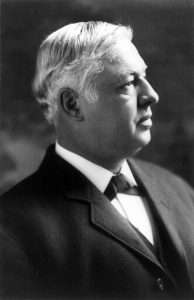Even as Venezuelans starve, Senator Rand Paul (R–Ky.) notes that socialism has gained ground in the United States.
That’s why he wrote “The Case Against Socialism.” The chapter on Venezuelan socialism is titled, “Because Eating Your Pets is Overrated.”
“You would think that…when your economy gets to the point where people are eating their pets, people might have second thoughts about what economic system they’ve chosen,” Paul tells John Stossel.
But Stossel notes that today American socialists say, “We won’t be like that.” Sen. Bernie Sanders (I–Vt.) says, “when I talk about Democratic socialism, I’m not looking at Venezuela. I’m not looking at Cuba. I’m looking at countries like Denmark and Sweden.”
But Paul debunks that myth in his book.
“It’s not true that the Scandinavian countries are socialist,” Paul tells Stossel.
Stossel points out that while Scandinavia tried socialist policies years ago, they then turned away from socialism, privatizing industries and repealing regulations. In fact, when experts rank economic freedom, Scandinavian countries rank near the top.
Denmark’s prime minister even responded to Sanders, saying: “Denmark is far from a socialist planned economy.”
Scandinavia did keep socialist policies like government-run health care. Media outlets suggest that’s why Scandinavians live longer.
But Paul says: “This is the trick of statistics…it started way before socialized medicine.”
His book has the stats to back that up. In the 1960s, before Sweden’s healthcare was totally nationalized, Swedish men already lived five years longer than American men. Now, they…still live five years longer.
Stossel says Paul’s book is different from other politicians’ platitude-filled books. Paul did actual research. He cites sources that back up his point about health care, comparing the life expectancy of Swedish and American men in 1960s.
Regarding Sweden’s ability to pull people out of poverty, Paul credits Swedish culture, not government programs. He tells Stossel of a story about Nobel Prize-winning economist Milton Friedman:
“This Swedish economist comes up to him and he says, ‘You know in Sweden we have no poverty.’ And Friedman responds, ‘Well, yeah, in America we have no poverty among Swedish Americans.'”
Paul confirms that with data from Swedish researcher Nima Sanandaji, who writes: “Danish Americans today have fully 55 percent higher living standard than Danes. Similarly, Swedish Americans have a 53 percent higher living standard than Swedes.”
Stossel says it’s good that Paul debunks these myths and warns against repeating the tragic history of socialism.
Paul gives a partial list of failures: “Stalin, Hitler, Mao, Pol Pot, Castro, Chavez, Maduro. It doesn’t work.”
The views expressed in this video are solely those of John Stossel; his independent production company, Stossel Productions; and the people he interviews. The claims and opinions set forth in the video and accompanying text are not necessarily those of Reason.
from Latest – Reason.com https://ift.tt/38Q98Qj
via IFTTT
